- Home
- Steve Erickson
Days Between Stations Page 15
Days Between Stations Read online
Page 15
“Yes,” he answered, with relief.
“Do you speak French?”
“Not very well. Perhaps if you speak slowly…”
“I will. I’m afraid my English is poor.” Fletcher thought he heard him laugh. “Almost forty years in the States, and I never really got the language.”
“Yes, well,” Fletcher said, “I grew up in Montreal. I had the opportunity to learn French, but my father was absolutely opposed. Considering he was French, it was rather unreasonable, on his part.”
“Rather.”
“As a young boy he painted a mural for your film.”
“Really? Yes, I think I do remember…I think. It’s, uh, been many—”
“We are men who speak our own language, monsieur,” Fletcher blurted. He thought it sounded silly then.
He heard him laugh again. “Is that to our credit or detriment?” There was another pause. “What is it, Monsieur Grahame?”
“The film—”
“No one cares, Monsieur Grahame. No one cares about that. I never finished it. I don’t know where most of it is, actually. My son may well have destroyed it.”
“Some of it,” Fletcher said, slowly, catching his breath, “some of it was in Los Angeles. Some of it has been in New York. Some of it was in London. In fact, I first stumbled on a reel of it in Montreal.”
“Well, it would take years to get it all in one place, I would think.”
“I have taken the years, Monsieur Sarre. I’ve been all over North America, and I spent seven months in London before I arrived a few weeks ago. I spent four months in Ireland before coming away empty-handed.”
After a pause the old man said, “Where is the film now?”
“In the cellar of this hotel.” He waited for him to say something. “I’d like to meet with you. I can bring the picture.”
Silence again.
“Monsieur Sarre—”
“Nobody cares, monsieur.” Quietly and bitterly he heard him say it. “I’m old. I’m eighty-something. That’s old. I never finished it.”
“I’ve come a long, long way,” Fletcher said, and felt all the years rush forward to this moment.
Silence again. “Come tomorrow morning at ten, then.”
“I’ll bring the picture.”
“Don’t bring the picture. Just come yourself. We’ll talk.” There was the final pause, as though he was about to say something else, or perhaps change his mind. Then he hung up.
Ten o’clock at seventeen rue de Sacrifice, Fletcher Grahame was led into a private chamber hidden from the rest of the hotel, occupied by a tiny man the top of whose head was bare, his long wispy white hair falling nearly to his shoulders. For a man who insisted he no longer concerned himself with the past, Adolphe Sarre surrounded himself with memories. On the walls were two enlarged frames: Thierry Touraine in the bath, two crossed flintlocks mounted above him, scattered editions of L’Ami du peuple around him, his head wrapped in a towel and tilted back, his eyes open and fixed on the ceiling and in his chest above his heart in a splash of black blood stood erect a dagger. Next to that was a smaller picture taken in the late twenties of Griffith with his hand on Adolphe’s shoulder; Griffith was already washed up by then and Adolphe was a legend, the cinematic visionary who never finished the greatest picture of all time. There was a clipping of Lillian Gish. On the shelf next to those pictures were the collected works of Eisenstein, Buster Keaton’s book, and Les grands auteurs du cinéma. Next to the shelf was a chest nearly as large as the one brought from Montreal. Next to the chest was a bed and a chair. On the wall next to the bed were still more old photographs: a gallery of directors: Griffith the colossus, Josef von Sternberg, the Russians Eisenstein and Pudovkin. Next to Pudovkin was the second enlargement. It was huge, nearly filling the wall; and one saw her eyes first, and then her mouth, in a swirl of dirty blond hair which came out gray and charcoal in the print—and it was the ineffable sadness that was so unbearable to look at. It was the trace of betrayal, and the way she appeared wounded, as though to open her up one would fall in forever; and the sound of her face was the freefall of her plummeting soul. Next to this picture was nothing.
Fletcher looked all the way around the little room, staring a long time at the frame of Marat dead in the bath, and at the two guns above Marat’s body; he turned to the old man. “It is an honor for me, monsieur,” he said, his voice passionless.
Adolphe gestured. He didn’t look any younger than he was. He glanced around the room himself, and shook his head with mock disgust. “Old people,” said Adolphe. “Old pictures. It’s nonsense, really.”
“Not at all.”
“Of course.” He looked up at Fletcher. “Listen,” he began, then stopped. “Sit down,” he said. “Do you mind sitting on the bed?”
“No.”
“I like the chair.” He sat in the chair. “Listen,” he started again. “I’m moved, really, by your concern. But the film is a dead issue.”
“I don’t believe so.” Fletcher leaned forward, intently. “I believe I have all the film but the end.”
“There is no end. That’s why you don’t have the end.”
“I’ve read you filmed the end. The murder of Marat.”
“That wasn’t the end,” said Adolphe. “The execution of Charlotte Corday was the end. I never shot that.”
“I believe—” Fletcher stopped a moment. “Forgive the presumption, Monsieur Sarre. You could as easily end it with the death of Marat.”
“Perhaps. But…” He shrugged, as though he was indifferent. “I doubt very much you could have all of it. Some of it must be in terrible condition. This is a relic, after all.”
“There are things in that film,” Fletcher said, “that are still astounding today.”
“People will only laugh at it.”
“They won’t.” Adolphe just shrugged again. Fletcher couldn’t decide if it was simply that Adolphe didn’t allow himself to hope any longer, after all these years; Fletcher’s father had come to that point. The two continued to talk but the old director seemed entrenched, insisting that the business of completing a film he’d begun almost seventy years before, and had given up some thirty years before, was the pursuit of a very lost cause. Fletcher insisted in turn that the picture would still capture the imagination of people who cared about the cinema, and the fact that it had never been released added to its mystique. Fletcher wondered aloud if that was what Adolphe was afraid of, that perhaps the film would not live up to its legend; and then he insisted the film would surpass its legend, creating a new impact.
It was all put forth so earnestly that Adolphe could only relent. The next morning the trunk was delivered, early; and Fletcher turned in the cellar key for the final time. Over the next couple of days Adolphe looked at what Fletcher had done. He was mildly astonished. Fletcher had located material that Adolphe had forgotten entirely, that he’d assumed was lost forever. Moreover, Fletcher had reassembled all the pieces into a whole, very close to what Adolphe himself might have done: even the culminating rhythms of the montage, the nerve-touching breaks between close-ups and wide-angles, between the intimate madness of Marat and Charlotte and the boggling turmoil of the peasants in the Paris streets. Adolphe could not, after all these years, help but be exhilarated that here was someone who understood what the director was trying to do all along. But, he continued telling Fletcher, it was too late.
“Is it possible,” Fletcher said, when the old director talked like this, “that no one else came along before me?”
“Oh, someone came,” said Adolphe. “Only one. There were many inquiries, but only one came, like you, to finish the film.” Fletcher waited as Adolphe looked at the wall and gazed around and then shook his head. Fletcher waited; and Adolphe’s eyes drifted to another place, and something was sorted out. “Do you know who she is?” he said, to the picture on the wall.
“The actress who played Charlotte Corday.”
“The mother of my daughter, and the grandmother
of my grandson.” He said nothing of his son. “The last time I saw her, she was walking with our four-year-old daughter in the Tuileries. I was standing on the other side of the gardens. The child looked exactly like her mother, and I know, because I remember when her mother was four years old. She turned and looked, and I walked away quickly, before her mother might turn and see me too.”
“Did you see them again?”
“Not ever,” he said. “I never saw either one of them again. I received letters from my daughter much later on, after she had grown, and knew who I was. I outlived them both.”
Still, Fletcher waited. “I don’t understand,” he finally said. “Then it was your daughter who wanted to finish—”
“My grandson,” said Adolphe. “My grandson was the one. My grandson whom she sent to the States—” He stopped.
“Yes?”
“The first time I saw him, it was from far away,” said Adolphe thoughtfully, “much like I had seen his mother from far away. But he never saw me, and he was only a young boy. He never knew anything of me until later. That was when he came to Paris to finish the picture.”
“Why didn’t he?”
“Why didn’t he what?”
“Finish the picture.”
“He went to see his mother, who was dying.”
“He never returned?”
“No.”
“You never heard from him again?”
“No.”
“He deserted you rather easily then,” Fletcher said in his monotone.
Adolphe was silent a moment, then he shrugged. “A strange young man. One way one moment, another way the next. But people always thought I was a strange young man. I think he was more my son than my son was, if you know what I mean.”
Fletcher didn’t think about why, but when he heard that, he didn’t want to talk about it anymore. In fact, he decided there were some answers he didn’t want to know at all. He had found Sarre, he told himself, and all he wanted now was to finish the picture. From that point on the two men gave all their time to viewing over and over the footage Fletcher had collected around the world. Thirty hours of it, all of it projected on the blank wall. Over and over, as the nights and days went by, they watched the thirty hours. No use, said Adolphe. No use contemplating a completed film without the end; and the end, he said, is gone forever.
When the archives in Montreal notified Fletcher they no longer had the funds to finance his work, then he had no choice but to make his quest public. He took out advertisements in newspapers, interviewed film scholars and historians, pored over the reference material of cinema libraries. He double-checked the sources he’d spent all the preceding years checking. He spoke to gatherings of students and artists, and always brought with him part of the film. Repeatedly he was astonished and depressed how many in his audiences had never heard of Sarre; the years in Hollywood had blotted out his importance in French cinema history. Because Sarre was regarded by many of the class instructors as something of a crackpot, it was Fletcher’s task to make his case: that he was attempting to restore to an original form a picture that never really had an original form, or at least anything that could be considered definitive. The reactions to Fletcher and the film were always the same—a bemused fascination—until he actually showed the segment of footage. Then they were electrified. The responses and questions were always the same as well, asked so many countless times that Fletcher understood them even when the sound of a gunshot in his head left him reading the lips of those who asked. Soon magazines and journals “rediscovered” the director. The Paris Opéra invited Adolphe to show Marat—“the masterpiece that could not be finished”—some sixty years after it was first scheduled to premiere. Adolphe refused: how could one have a picture called La Mort de Marat without la mort, he asked, it was ridiculous, like a novel without a final chapter; it was unthinkable; it could not be shown unfinished.
Fletcher had about come to the conclusion that the ending of the film did not exist. He had no doubt that Adolphe once shot it, he had no doubt it existed once upon a time. But given what was now a virtual dragnet throughout the world film community, given that the film had become a cause célèbre among film makers and students alike, and given that an enormous amount of publicity had not produced the ending or any trace of it, it seemed clear that the conclusion of the film had been destroyed, probably by Jack Sarasan, or buried so deeply beneath layers of indifference and ignorance and anonymity that it was unlikely ever to surface. So Fletcher thought perhaps the film should be shown without the ending; perhaps that was as complete as La Mort de Marat was ever to be. Yet he couldn’t help but admire that for Sarre the artist it wasn’t enough, that nothing less than the complete realization of his vision would suffice—there would be no Marat unless it was Sarre’s Marat. Fletcher recognized such a commitment as the madness it possibly was, but he couldn’t help admiring, if not the madness, then the commitment itself.
This went on nearly a year when one afternoon Fletcher was in Adolphe’s room alone, waiting for the old man who had gone on one of his rare excursions outside the hotel: he was looking at the photographs on the walls again, studying each one with fascination. He looked at the books and then picked up more clippings and photographs from the trunk. He had never looked in the trunk before. Adolphe had never opened it. Fletcher shuffled through a few mementos, turned over a few old journals, and caught, in the peculiar light of this room that seemed to come from nowhere, the glint of metal; and reaching down through the debris of the old man’s memories, he pulled it up: round, silver, dusty, and written across the edge of the can on a bit of tape: Marat. Finis
He heard the door of the house open and close, and he just stood there looking at the film. He just stood there with the film in his hand and turned as Adolphe came into the room. He looked at Adolphe and Adolphe looked back at him and at the film in his hands, and his small eyes seemed to bulge. For a moment neither said anything; the old man was white and the protégé was gripping the film so hard the metal almost bent beneath his fingers. He was shaking. The old man leaped forward, his hands flying for the film, but Fletcher yanked it out of reach. Adolphe looked at the opened chest and back at Fletcher’s hands. “How dare you,” he muttered.
“How dare I?” Fletcher whispered hoarsely. He looked around incredulously; the room became a vision of mortification to him. “How dare I,” he said again, almost to himself, and looked at Adolphe, who sank onto the bed. Fletcher slowly sat on the edge of the trunk with the film still in his hands. He closed his eyes. The old man seemed smaller, whiter in the corner on the bed. He wasn’t looking at Fletcher at all but seemed to be curling up, burying his eyes away from the room’s light. “You had it all along,” Fletcher said finally, after several moments. He spoke evenly, like it was rational, like it was one of those things he always understood.
Adolphe said nothing, burying himself beneath his arms at the far region of the bed. When enough time passed that he might have understood some explanation was awaited, then he looked up, but not at the other man.
“You finished it a long long time ago, didn’t you,” Fletcher went on. “It was always really finished, but you always found reasons for it not to be finished. Greedy producers, changing times, your son, all of it. Everyone gave you a great many reasons for the film to never be finished.” He thought. “Was it that you were frightened the film could not be as good as—”
“No.” Adolphe laid his head back against the wall.
“It was,” said Fletcher, “so much a part of your life that you couldn’t let it go—”
“No.”
He looked at the old man and stood up from the trunk, sputtering, “Then why? Then you tell me why.”
And Adolphe didn’t look at him at all. “I was never worthy of it,” he finally declared. He sat listening to the sound of it, considering what it meant, determining how long he had known it was so.
Fletcher began shaking his head. He kept shaking his head, standing before the
old man. No, he answered. He kept shaking his head. No, he said again, and walked from the spot where he stood and walked back, shaking his head all the while. His knuckles were still white from holding on to the film. What is it that you’re telling me? he said. That this has been penance? Adolphe said nothing. Fletcher turned from him and pulled from the side of a cupboard the projector. He set it up and began threading the film through. “It doesn’t matter,” he said. He was no longer red; he was speaking at a level that could barely be heard from across the room. “The film isn’t yours anymore.” He nodded at Adolphe. “I’ve inherited the conviction you once had for it, however long ago it was. You forfeited your right to it when you forfeited your belief in it, when you used it to pay off your conscience for…whatever.” He closed the door of the room and looked with exasperation at the light that never went away; then turned on the projector.
The first and last minutes had been spliced or lost; what was here was only the core of the footage. Charlotte Corday was sitting in a house. Right away something seemed wrong, it didn’t fit. The house didn’t appear furnished in the period; and the woman was quite a bit older than she had been in the rest of the film. She looked to be around fifty. The camera followed her from room to room; and the more the camera revealed of the house, the less right it looked. There was no sound, but there were subtitles in English, not French, which the old man could not read. But Fletcher could read them, and when the old woman talked about the night she discovered her twin sons drowned on the beach, he began to realize this was not Charlotte at all, and certainly not Marat. The footage ran out and left the two men staring at the blank wall, stunned. Fletcher turned to Adolphe. “Where is it?” he said.
Adolphe looked back slowly. He focused on Fletcher. “Where is what?”
“The ending. The murder of Marat.”
Adolphe shook his head, befuddled. Fletcher walked around the projector and stood there, looking down at him. Adolphe kept pursing his lips, like he was about to ask a question. He stared back at the wall, and then at his hands. “I don’t know,” he finally said. He gestured toward the wall. “I don’t remember.” He stopped a moment, almost lost. “She looked so much older,” he said.

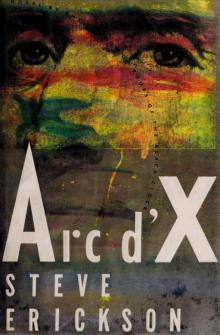 ARC D’X
ARC D’X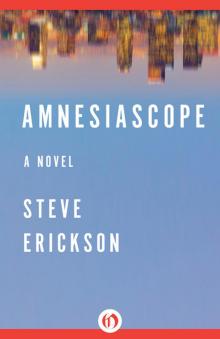 Amnesiascope
Amnesiascope Our Ecstatic Days
Our Ecstatic Days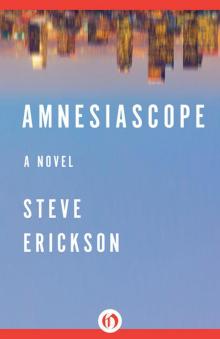 Amnesiascope: A Novel
Amnesiascope: A Novel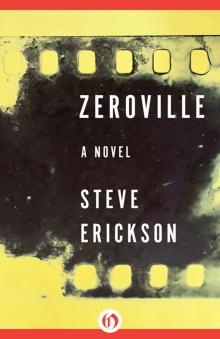 Zeroville
Zeroville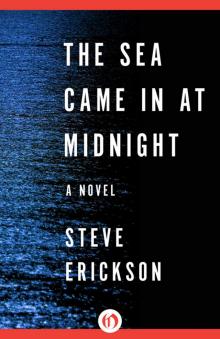 The Sea Came in at Midnight
The Sea Came in at Midnight These Dreams of You
These Dreams of You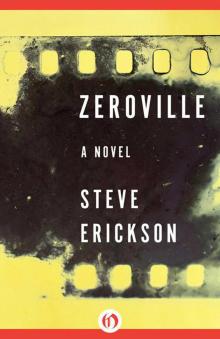 Zeroville: A Novel
Zeroville: A Novel Days Between Stations
Days Between Stations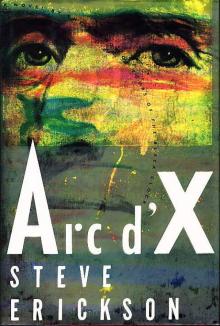 (1993) Arc d'X
(1993) Arc d'X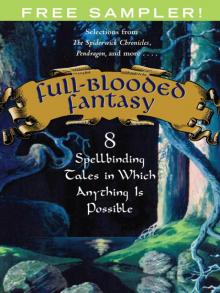 Full-Blooded Fantasy
Full-Blooded Fantasy